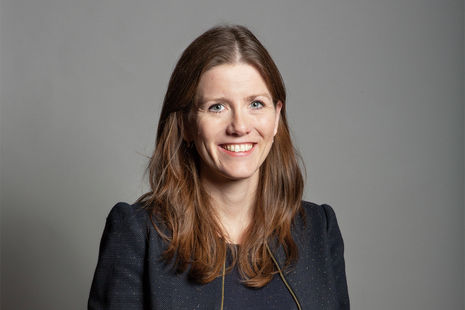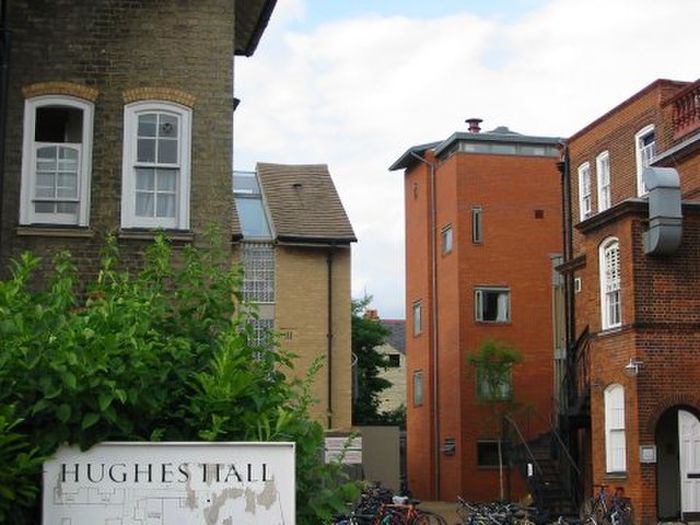Cambridge won’t rule out use of gagging clauses
Cambridge has still not signed pledge which aims to stop the misuse of non-disclosure agreements against victims of harassment

Content note: This article contains discussion of sexual violence.
Cambridge is refusing to sign a pledge banning the use of non-disclosure agreements against victims of sexual harassment, despite nearly 50 other UK universities doing so.
The voluntary pledge, backed by Michelle Donelan, the Minister for Universities, and the campaign group Can’t Buy My Silence, was launched in January this year.
Universities that are participating commit to not using the agreements to “silence people” who come forward to raise complaints of sexual harassment, abuse or misconduct, or other forms of harassment and bullying. While Bristol, Manchester and UCL have all signed the pledge, Cambridge and Oxford are yet to add their names.
While a tweet from Can’t Buy My Silence on January 19 suggested that Cambridge supported the initiative, Varsity has learned that the University never signed the pledge.
The University put out a statement later that day to “clarify its position” on the use of NDAs, saying: “NDAs should not be used to prevent individuals from reporting sexual misconduct or to cover up inappropriate behaviour and the University of Cambridge will never use them for these purposes. However, in exceptional circumstances a degree of confidentiality may be to the benefit of all parties.”
Julie Macfarlane, co-founder of Can’t Buy My Silence with Zelda Perkins, has been negotiating with Cambridge over the pledge. She said: “We have had a constructive conversation, but there is still reluctance to commit to not using NDAs at any stage of the misconduct complaints process and assuring Cambridge students (and staff) that bringing a complaint will not lead to them being silenced.
“Allowing a broad discretion – ‘wiggle room’ for ‘exceptions’ - leaves the same problems in place; discouragement from bringing forward a complaint about misconduct, or accepting a gag. More concerning, this discussion seems to be a low priority for Cambridge and not something the University is taking seriously enough.”
Oxford’s similar resistance came under criticism following a recent article in The Times revealing that an Oxford college, Lady Margaret Hall, warned a student not to speak to the media after she reported that she had been raped by a fellow student. According to The Times, the College later announced that it would sign the anti-NDA pledge, but it has yet to appear on the list of signatories.
Ben Dalitz, the Cambridge SU welfare and community officer, said they were “deeply concerned” by the University’s decision not to sign the pledge.
“We have been attempting to raise the issue of NDAs with the University’s senior management since January when the pledge was launched.
“The use of Non-Disclosure Agreements to cover up harassment and misconduct contributes to a culture of silence and erasure surrounding sexual violence within higher education, and serves to protect racist and patriarchal power structures. Universities rely on ‘gagging clauses’ and slow, opaque procedures that take place behind closed doors to evade accountability for the sexual violence and racism that exist at these institutions.”
When contacted for comment, a University spokesperson said: “The University of Cambridge will never use Non-Disclosure Agreements (NDAs) to prevent individuals from reporting sexual misconduct or to cover up inappropriate behaviour. The University considers the safety and wellbeing of members of its community to be of paramount importance and supports the right of complainants to take the matter to the police or other regulatory agencies and warn others about proven perpetrators of abuse or inappropriate behaviour.
“There are, however, rare occasions when non-disclosure agreements, made as part of the settlement of a dispute, can benefit all parties to it. Where a complainant genuinely wishes a settlement agreement to contain an NDA, its terms are clear and the complainant has received independent legal advice about its effect, the parties should be free to reach a settlement on this basis. The University is unable to give a commitment that could be interpreted as preventing the use of NDAs in this sort of situation, however infrequently it may arise.”
 News / Judge Business School advisor resigns over Epstein and Andrew links18 February 2026
News / Judge Business School advisor resigns over Epstein and Andrew links18 February 2026 News / Hundreds of Cambridge academics demand vote on fate of vet course20 February 2026
News / Hundreds of Cambridge academics demand vote on fate of vet course20 February 2026 News / Petition demands University reverse decision on vegan menu20 February 2026
News / Petition demands University reverse decision on vegan menu20 February 2026 News / CUCA members attend Reform rally in London20 February 2026
News / CUCA members attend Reform rally in London20 February 2026 News / Caius students fail to pass Pride flag proposal20 February 2026
News / Caius students fail to pass Pride flag proposal20 February 2026











